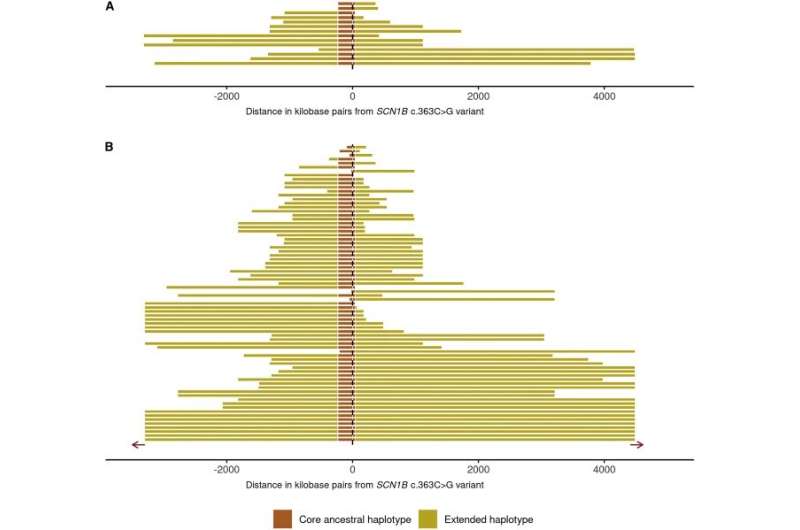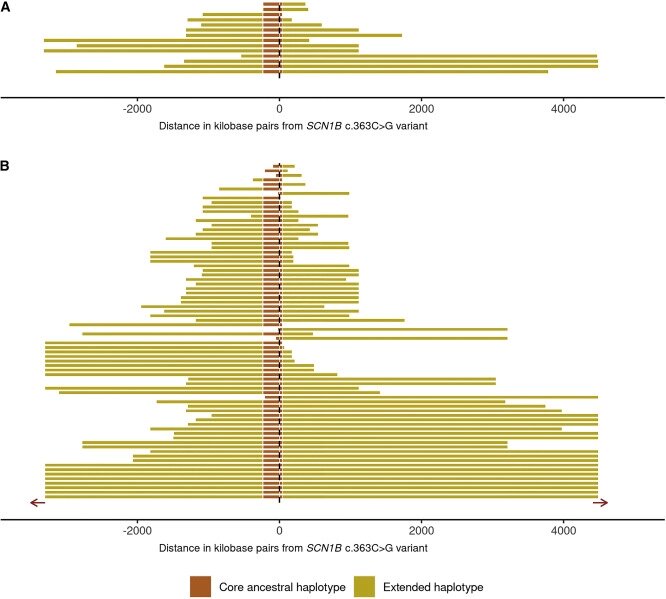
A team of researchers affiliated with several institutions in Australia and the U.K. has found evidence that suggests one type of epilepsy people carry today can be traced back to a mutation that occurred in a single person approximately 800 years ago. In their paper published in The American Journal of Human Genetics, the group describes finding the genetic variant responsible for the disease in the U.K. Biobank.
Epilepsy is not just one disease, it is a group of diseases that have shared symptoms. The most common symptom is the periodic onset of a burst of abnormal brain activity, which presents as seizures. One type of the disease is called febrile epilepsy—it is notable because the seizures it causes are accompanied by a fever. Prior research has shown that it can be traced to the SCN1Bc.363C>G variant. It is less severe than other types of epilepsy; some people with the variant do not even know they have it.
In this new effort, the researchers sought to learn if the variant responsible for febrile epilepsy had arisen in multiple people over time or if it could be traced back to just one person. To find out, they traced the lineage of 14 people with the variant. Finding nothing that suggested multiple people had originally had the variant, they expanded their search to include data from the U.K. Biobank and found 74 people with the variant. A closer look showed that all of them had the same sort of patterns in their variants, which together made them a haplotype.
Because it is unlikely that all of the people they found with the variant had the same haplotype without having a shared ancestry, the variant probably arose in a single person and was passed down over several generations. A closer look at the variant suggests it arose in a person who lived approximately 800 years ago, probably in Britain.
Source: Read Full Article
